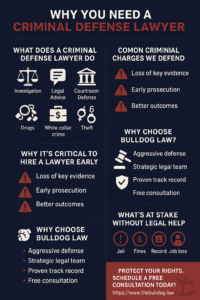
Introduction
When it comes to launching or investing in a high-growth startup, having the right legal guidance is crucial. That’s where a Venture Capital Attorney steps in. These specialized lawyers play a pivotal role in structuring, negotiating, and executing funding deals between startups and investors. Whether you’re an entrepreneur seeking funding or a venture capitalist looking to protect your interests, a venture capital attorney ensures every legal element is covered.
In this guide, we’ll explain what a venture capital attorney does, why they’re essential in startup funding rounds, and how they protect both investors and founders throughout the investment lifecycle.
What Is a Venture Capital Attorney?
A venture capital attorney is a legal professional who specializes in venture capital transactions, startup law, and investment financing. They advise both startup companies and venture capital firms on structuring equity deals, negotiating term sheets, ensuring regulatory compliance, and managing risk during capital raises.
These attorneys operate at the intersection of business, finance, and law. They understand corporate governance, intellectual property, securities law, and the unique needs of early-stage companies.
Key Roles and Responsibilities of a Venture Capital Attorney
-
Term Sheet Negotiation and Drafting
One of the first steps in a venture capital transaction is drafting and negotiating a term sheet—a non-binding document that outlines the key terms of the investment. A venture capital attorney ensures these terms are fair, balanced, and reflective of the client’s goals.
They help define:
- Valuation of the company
- Percentage of equity offered
- Preferred stock rights
- Anti-dilution protections
- Liquidation preferences
- Voting rights
-
Due Diligence
Before funding is finalized, investors conduct due diligence on the startup. Venture capital attorneys help startups prepare for this process by:
- Reviewing cap tables
- Organizing legal documents
- Assessing intellectual property ownership
- Ensuring corporate compliance
For investors, they help review and analyze all legal documents to spot any red flags.
-
Drafting Investment Agreements
After the term sheet comes formal agreements. Venture capital attorneys draft and review complex legal documents such as:
- Stock purchase agreements
- Shareholder agreements
- Voting agreements
- Right of first refusal agreements
- Employee stock option plans
-
Regulatory Compliance
Raising capital, especially from accredited investors, is regulated by the Securities and Exchange Commission (SEC). Venture capital attorneys ensure that startups comply with applicable securities laws and file the necessary documentation, such as Form D filings under Regulation D.
-
Exit Strategy Planning
Whether it’s a public offering (IPO), acquisition, or merger, venture capital attorneys also assist clients with exit strategies. They help negotiate terms that safeguard the client’s financial interests during liquidity events.
Why Startups Need a Venture Capital Attorney
For startups, venture capital funding is both an opportunity and a risk. Mistakes in early-stage financing can cost equity, control, or even the future of the business. A venture capital attorney ensures:
- Legal due diligence is complete and accurate
- Founders maintain fair ownership
- Investment terms are not overly restrictive
- Intellectual property is protected
- The startup is prepared for future funding rounds
Why Investors Need a Venture Capital Attorney
Investors need legal protection just as much as startups do. A venture capital attorney helps investors:
- Assess and mitigate financial risks
- Ensure preferred stock rights and liquidation preferences
- Conduct rigorous due diligence on the company
- Structure deals for maximum ROI and control
- Protect interests during company exits
When to Hire a Venture Capital Attorney
It’s best to involve a venture capital attorney before any term sheet is signed. Early involvement ensures all negotiations, legal structures, and compliance issues are handled proactively rather than reactively. Startups and investors should ideally engage legal counsel during:
- Pre-seed or seed funding
- Series A, B, or C rounds
- SAFE (Simple Agreement for Future Equity) or convertible note financing
- Exit planning
How to Choose the Right Venture Capital Attorney
Here are a few things to consider:
- Experience: Look for an attorney or law firm with a strong track record in venture capital and startup law.
- Industry Knowledge: Choose someone familiar with your industry—whether it’s tech, healthcare, SaaS, or consumer products.
- Communication Skills: A good attorney should explain complex legal terms in simple language.
- Network: Attorneys with strong connections can introduce you to potential investors or startup resources.
FAQs About Venture Capital Attorneys
- What’s the difference between a startup attorney and a venture capital attorney?
A startup attorney helps with general business law needs—like incorporation, IP, and contracts. A venture capital attorney specializes in investment deals and funding rounds.
- How much does a venture capital attorney cost?
Costs vary depending on the attorney’s experience and firm size. Many offer flat rates for specific services or hourly rates ranging from $300 to $800+.
- Do I need a venture capital attorney for a SAFE note or convertible note?
Yes. Even though SAFE notes are simpler than traditional equity deals, they still carry legal implications. A venture capital attorney will ensure fair and compliant terms.
- Can a venture capital attorney help with fundraising strategy?
Indirectly, yes. While their main role is legal, experienced attorneys often advise on fundraising strategy, introductions to VCs, and negotiating better deals.
- Should investors and startups use the same attorney?
No. This creates a conflict of interest. Both parties should have separate legal counsel to ensure fair representation.
Final Thoughts
In the high-stakes world of startup funding, a venture capital attorney is an indispensable ally. From term sheet negotiation to regulatory compliance, they safeguard your interests and guide you through the legal complexities of raising or investing capital. Whether you’re launching your first startup or making your next big investment, don’t go it alone—partner with an experienced venture capital attorney to set your business up for success.







